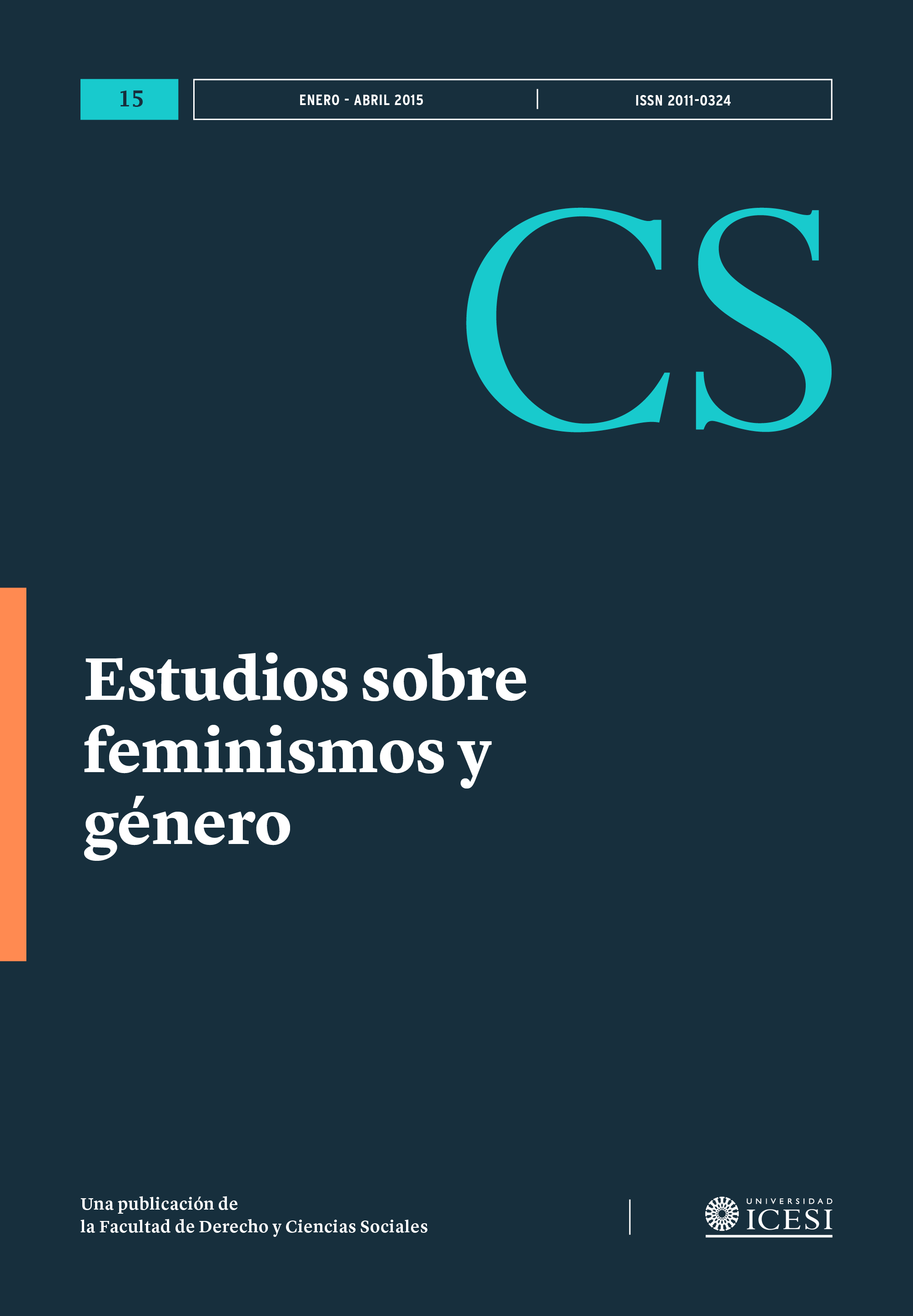When Oliver kissed another boy, his best friend, Dick. Literary languages and violent language directed at LGBT youth in the school system
DOI:
https://doi.org/10.18046/recs.i15.1986Keywords:
LGBT, discrimination, language, literature, education, youth, sexual diversity, Fernando MolanoAbstract
This paper analyzes the way in which homophobic offensive language perpetuates discrimination against LGBTQ youth in the school system. Although it exemplifies a global problem, the Colombian case articulates a local answer. Results from fieldwork conducted by the author in elite high schools in Bogotá are shown to illustrate how verbal expressions of hate permeate the educational realm. Also, some literary pieces are studied, especially those from the poet and novelist Fernando Molano Vargas (1961-1998). The inclusion of his works in educational curricula is advocated. Literary language is opposed to hate language, to express ways to resist the latter that are able to legitimate non-heterosexual affects.
Downloads
References
BUTLER, J. (2007). El Género en Disputa. Barcelona: Paidós.
BUTLER, J. (1997). Lenguaje, poder e identidad. Madrid: Síntesis.
CANTOR, E. (2008). Homofobia y Convivencia Escolar. Bogotá, Colombia: Universidad Pedagógica Nacional.
CORNEJO, G. (2011). "Contra la familia: ¿Cómo hacer justicia a los niños afeminados?" Nómadas (35). Bogotá, Colombia: Universidad Central.
CONSEJO DE ESTADO. Sentencia de 12 de Noviembre de 2014, Impugnación de Acción de Tutela. República de Colombia.
EL ESPECTADOR. (2008). Nuevas protestas en colegio de Manizales por dos niñas lesbianas. 28 de Abril de 2008.
EL TIEMPO. (2012). 28 de Enero. Según concejal, dar clases sobre la comunidad LGBT podría estar promoviendo la homosexualidad. 29 de Enero de 2012.
EL TIEMPO. Dos estudiantes lesbianas que habían sido expulsadas de un colegio de Manizales serán reintegradas. 24 de Abril de 2008.
ERIBON, D. (2000). Identidades, reflexiones sobre la cuestión gay. Barcelona: Ediciones Bellaterra.
FELMAN, S. (2002). The Juridical Unconscious: Trials and Traumas in the Twentieth Century. Harvard: University Press.
HALBERSTAM, J. (2005). In a Queer Time and Place: Transgender Bodies, Subcultural Lives. NY: New York University Press.
HANSON, E. (2011). The Future's Eve: Reparative Reading after Sedgwick''. The South Atlantic Quarterly, 110 (1), 101–119.
LEMAITRE RIPOLL, J. (2009). El derecho como conjuro: fetichismo legal, violencia y movimientos sociales. Bogotá, Colombia: Siglo del Hombre y Universidad de Los Andes.
MOLANO VARGAS, F. (1992). Un Beso de Dick. Medellín, Colombia: Cámara de Comercio.
MOLANO VARGAS, F. (2012). Vista desde una acera. Bogotá: Seix Barral.
MOLANO VARGAS, F. (1997). Todas mis cosas en tus bolsillos. Universidad de Antioquia, Colombia: Celeste.
REPÚBLICA DE COLOMBIA. (2011). Corte Constitucional. Sentencia T–905
RORTY, R. (2000). "Derechos Humanos, racionalidad y sentimentalismo", en: Verdad y progreso. Barcelona: Paidós.
SEDGWICK, E. (2003). "Paranoid Reading and Reparative Reading, or, You're So Paranoid, You Probably Think This Essay Is about You", en: Touching Feeling: Affect, Pedagogy, Performativiy. Duke University Press.
Fuentes online
And This is Jamey's HAUSE. (2011, 4 de Mayo). "It Gets Better, I promise!". Youtube [archivo de video] Recuperado de: https://www.youtube.com/watch?v=–Pb1CaGMdWk
Downloads
Published
Issue
Section
License
Copyright (c) 2015 Mauricio Pulecio

This work is licensed under a Creative Commons Attribution-NonCommercial 4.0 International License.
© Reserved Copyright
Material in this publication may be reproduced without authorization, provided the title, author and institutional source is acknowledged.
The content published in Revista CS is distributed under the Creative Commons BY-NC 4.0 Attribution/Recognition-NonCommercial 4.0 International license.
You are free to:
Share — copy and redistribute the material in any medium or format.
Adapt — remix, transform, and build upon the material.
Under the following terms:
Attribution — You must give appropriate credit , provide a link to the license, and indicate if changes were made . You may do so in any reasonable manner, but not in any way that suggests the licensor endorses you or your use.
NonCommercial — You may not use the material for commercial purposes.












